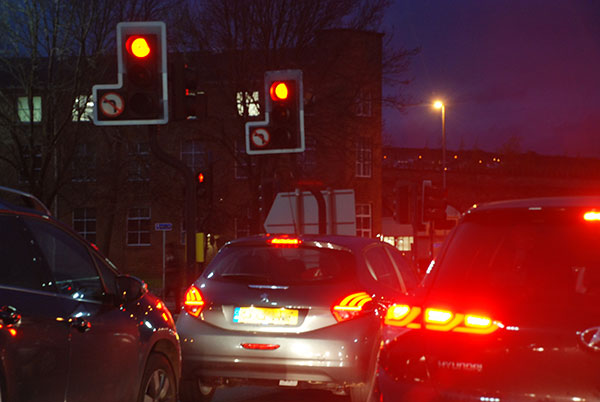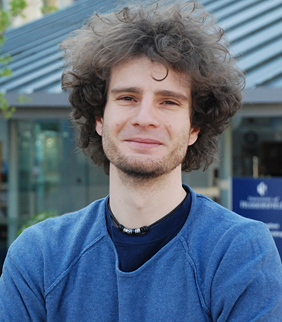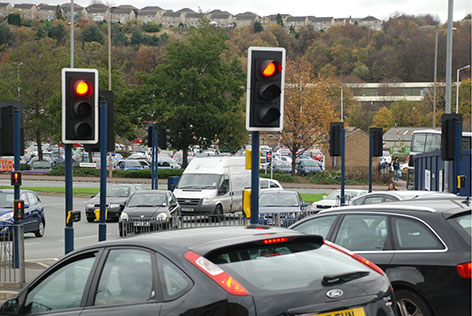First prize for AI traffic control system that thinks for itself

Wed, 11 Nov 2015 11:30:00 GMT
“...the goal of autonomic transport systems is to reduce reliance on decision-making by human controllers...”
 AS the number of vehicles on roads in the UK and overseas continues to rise to record levels, congestion is a fact of everyday life and urban gridlock is a constant threat. Scientists at the University of Huddersfield are investigating the use of Artificial Intelligence as a way of keeping the traffic flowing, and Dr Mauro Vallati (pictured right), of its Department of Informatics, is the leader of a multi-national team that has been awarded a prize for its research in the field.
AS the number of vehicles on roads in the UK and overseas continues to rise to record levels, congestion is a fact of everyday life and urban gridlock is a constant threat. Scientists at the University of Huddersfield are investigating the use of Artificial Intelligence as a way of keeping the traffic flowing, and Dr Mauro Vallati (pictured right), of its Department of Informatics, is the leader of a multi-national team that has been awarded a prize for its research in the field.
There are some intelligent systems already on the market that monitor flow and respond by automatically controlling traffic signals. But they can only cover a restricted area. At the University of Huddersfield, a research group named PARK (Planning, Autonomy and Representation of Knowledge), headed by Professor Lee McCluskey, is developing a system that can control huge areas of a city’s transport network, populated by upwards of 10,000 vehicles. Cameras and sensors feed data to a computer which makes its own “decisions”, such as the duration of green light phases at traffic lights.
A simulation has been tested for Greater Manchester, and the next phase is to develop the system using real-life data supplied by that city’s transport authority.
 Italian-born Dr Vallati – a Research Fellow at the University of Huddersfield – is a member of PARK and closely involved in the traffic systems research. He formed a team to take part in the Second Autonomic Road Transport Systems Competition, held at Bordeaux in France. It took place under the aegis of the long-running EU-backed research framework named European Co-operation in Science and Technology (COST). Professor McCluskey chairs the sub-project – or “action” – titled Towards Autonomic Road Transport Support Systems.
Italian-born Dr Vallati – a Research Fellow at the University of Huddersfield – is a member of PARK and closely involved in the traffic systems research. He formed a team to take part in the Second Autonomic Road Transport Systems Competition, held at Bordeaux in France. It took place under the aegis of the long-running EU-backed research framework named European Co-operation in Science and Technology (COST). Professor McCluskey chairs the sub-project – or “action” – titled Towards Autonomic Road Transport Support Systems.
Dr Vallati formed a team with two fellow researchers in the field whom he had worked with previously – Dr Daniele Magazzeni, of King’s College London, and Professor Bart De Schutter of Holland’s Delft University of Technology. The trio developed a Road Traffic Support System software package especially for the COST competition, but it drew on existing work by PARK and it will feed into the ongoing Greater Manchester project.
Its breakthrough is “scaleability”, meaning that it has the potential to control large areas of road traffic. The contest organisers also sought evidence of “system resilience” and the capacity to respond to a wide range of events.
The contest was judged by experts from the French Institute of Science and Technology for Transport, the New University of Lisbon, University College Dublin and Durham University. After the entrants had demonstrated their packages, the trio led by Dr Vallati was awarded joint first-prize, sharing it with a team from Charles III University, Madrid.
The goal of autonomic transport systems is to reduce reliance on decision-making by human controllers, said Dr Vallati. Improved traffic flows would lead to wide range of environmental and economic benefits.







